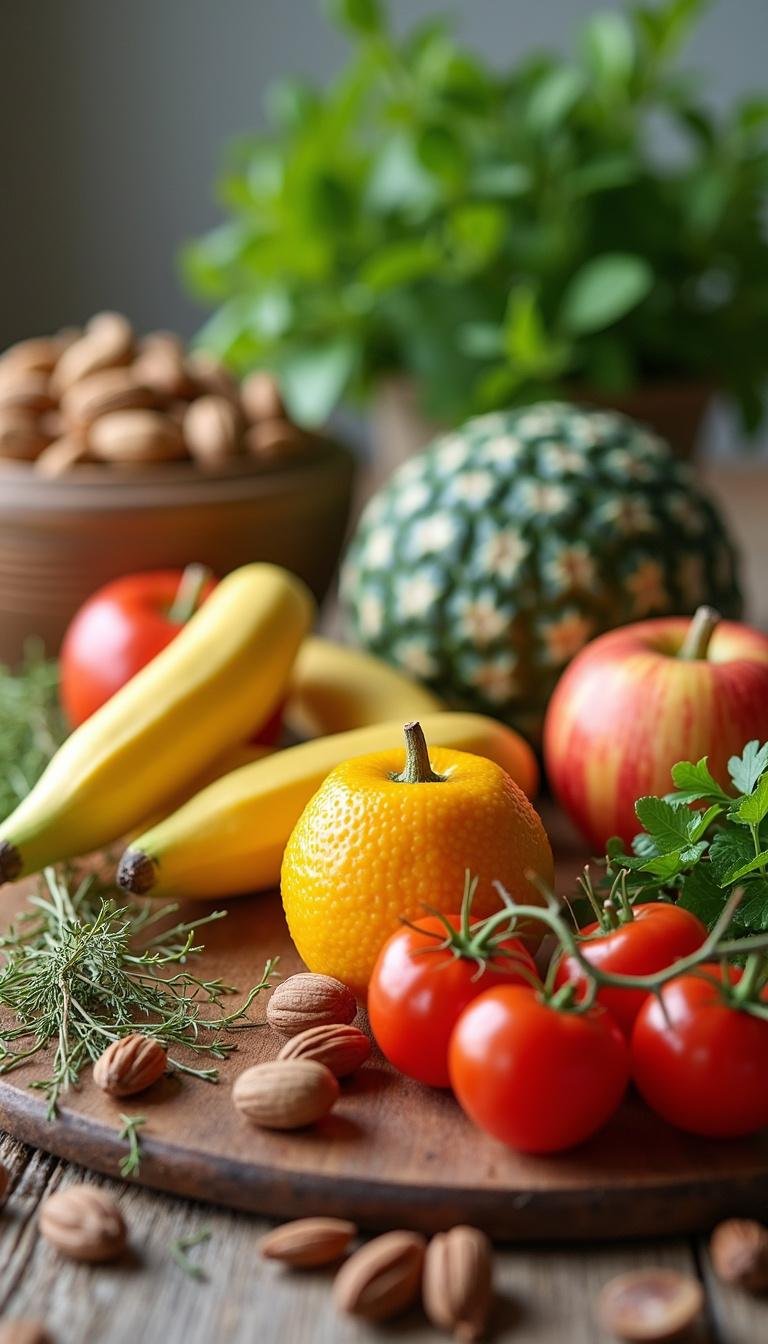1. Introduction
Low libido in women is a multifaceted issue that can profoundly impact personal well-being, intimacy, and relationship satisfaction. While hormonal imbalances are often recognized as a common cause, many women experience decreased sexual desire due to non-hormonal factors. These include emotional, psychological, and lifestyle-related influences. Emphasizing natural solutions such as cultivating healthy eating habits, managing stress effectively, and enhancing overall wellness can significantly improve sexual desire without relying on hormonal therapies. This comprehensive guide explores the real causes of low libido in women and provides actionable, holistic strategies—ranging from nutrition tips to lifestyle changes—that foster a healthier, more satisfying sexual life.
2. What Are the Main Causes of Low Libido in Women?
Understanding the root causes of low female libido is essential to addressing the issue effectively. Multiple factors can contribute, spanning physical health, mental well-being, and lifestyle choices. Below are some of the most prevalent causes of low libido in women:
- Stress and Anxiety: Persistent stress and anxiety can disrupt hormones, impair blood flow, and diminish sexual interest. For stress management, consider incorporating fitness routines or relaxation techniques—like mindfulness or yoga—found through trusted wellness resources. And don’t forget, adopting healthy eating habits can help moderate cortisol levels—learn more here: how stress and anxiety sabotage your sex life.
- Poor Nutrition and Diet: An imbalanced diet lacking essential nutrients can lead to fatigue, mood swings, and lowered libido. Prioritize good nutrition by including nutritious foods such as leafy greens, nuts, and omega-rich fish—these support hormonal health and energy levels. For comprehensive guidance on dietary habits, check out this nutrition tips tool.
- Sleep Disorders: Insufficient or poor-quality sleep affects hormone production, including testosterone and estrogen, which are key to desire. Improve your sleep quality by embracing lifestyle tips like establishing a bedtime routine—find helpful strategies here: stress management and sleep tips.
- Relationship Issues: Emotional intimacy and unresolved conflicts can significantly reduce libido. Enhancing communication and emotional bonding can be achieved through creative activities like couples games, such as RISKY COUPLES – Super Fun Couples Game for Date Night.
- Chronic Illness: Conditions such as depression, diabetes, and cardiovascular disease can impair desire. Proper management of these health issues through lifestyle adjustments and good nutrition is vital. Explore how wellness practices influence sexual health in our related article: stress and health impacts on desire.
- Medications: Certain medications, especially antidepressants and blood pressure drugs, may diminish libido. Review medication side effects with your healthcare provider and consider natural, supportive remedies available in well-being books like The Seven Principles for Making Marriage Work.
- Hormonal Fluctuations: While hormones influence libido, they are not the sole determinants. Addressing lifestyle and emotional factors can often restore desire naturally.

3. The Role of Healthy Eating Habits in Boosting Libido
One of the most promising non-hormonal avenues for enhancing female sexual desire is adopting healthy eating habits. Nutrition plays a crucial role in regulating hormones, maintaining energy, and promoting overall wellness. A balanced diet rich in nutritious foods supports blood circulation, hormone production, and stress reduction—all vital for boosting libido naturally. When you prioritize good nutrition, you’re laying the foundation for a more vibrant sex life rooted in natural health principles. For example, incorporating antioxidant-rich berries or omega-3 fatty acids from fish can make a meaningful difference.
4. Nutrition Tips for Improving Women’s Libido Naturally
Focusing on nutritional tips and establishing healthy dietary habits can significantly influence female libido. Here are some nutrition tips and essential healthy food choices that support sexual well-being:
- Eat Nutritious Foods: Fill your plate with colorful fruits, vegetables, nuts, seeds, and whole grains—these foods provide essential vitamins and minerals that bolster energy and hormonal balance. For additional ideas on nutritious eating, visit this food guide.
- Include Libido-Enhancing Foods: Omega-rich fish like salmon, zinc-packed oysters, and antioxidant-dense berries support blood flow and hormone synthesis. Explore trending products like Why Men Love Bitches for empowering relationship dynamics that complement physical health.
- Limit Processed and Sugary Foods: Cutting back on processed snacks and sugary treats reduces inflammation and promotes vascular health, both vital for desire. You can find useful tips on implementing these changes in lifestyle books like Love & Respect.
- Stay Hydrated: Proper hydration ensures optimal blood circulation, energy levels, and overall wellness. Consider adding herbal teas or mineral waters as part of your daily routine.

5. Lifestyle Tips to Enhance Libido Without Hormones
In addition to good nutrition, adopting positive lifestyle tips can support natural improvements in women’s libido. Consider incorporating these strategies:
- Practice Regular Exercise: Engaging in physical activity increases blood flow, releases mood-boosting endorphins, and can directly enhance desire. Even simple routines like walking or yoga can make a difference.
- Manage Stress Effectively: Techniques such as yoga, meditation, deep breathing exercises, or even engaging in fun activities—like couples game nights—are vital for reducing stress levels that inhibit libido.
- Prioritize Quality Sleep: Adequate rest restores hormone balance and energizes the body. Establishing a calming bedtime routine can improve sleep quality significantly.
- Build Emotional Intimacy: Open dialogue and shared experiences foster emotional connection, which is strongly linked to sexual desire. Exploring activity ideas through tools like Let’s Get Deep Question Game can enhance intimacy.

6. Incorporating Good Nutrition and Wellness for Better Libido
Achieving a healthy lifestyle that promotes libido involves more than just dietary choices. It encompasses overall wellness practices that support physical, emotional, and mental health. Here are some essential strategies:
- Focus on Eating Well: Emphasize nutrient-dense foods to fuel your body and support hormonal health. Think salads, lean proteins, and fermented foods that promote gut health, which influences hormone production.
- Stay Active: Regular physical activity improves circulation, mood, and reduces stress—key factors for libido enhancement.
- Limit Alcohol and Tobacco: Excessive alcohol and smoking restrict blood flow and impair desire. Consider lifestyle products like Position of the Day: Sex Every Day in Every Way for intimacy inspiration.
- Practice Mindfulness: Cultivating self-awareness through meditation increases body positivity, reduces stress, and enhances desire. Incorporate mindfulness exercises into your routine for sustained benefits.

7. Frequently Asked Questions About Low Libido in Women
What are some natural ways to increase women’s libido?
Natural methods include adopting healthy eating habits, practicing stress-reduction techniques such as mindfulness or yoga, ensuring quality sleep, and fostering emotional intimacy with your partner. Incorporating nutritious foods like berries, nuts, and leafy greens can naturally support hormone synthesis and blood flow.
Can improving diet help with low libido?
Absolutely. A balanced diet that emphasizes nutrient-rich healthy food choices enhances energy, stabilization of hormones, and blood circulation—all essential components of healthy libido. For specific dietary approaches, check out this wellness guide.
Are there specific foods that boost female libido?
Consensus points toward foods high in zinc, omega-3 fatty acids, and antioxidants—like oysters, pumpkin seeds, berries, and dark leafy greens—being particularly supportive for women’s sexual health. Adding these into your diet can make a tangible difference.
Is lifestyle change sufficient to improve low libido without medication?
Many women find that lifestyle modifications—such as improved nutrition, regular physical activity, and stress management—are sufficient, especially when their low libido stems from emotional or lifestyle factors. For personalized advice, consulting with a healthcare provider is recommended.
8. Conclusion
Low libido in women, often rooted in non-hormonal causes, can be effectively addressed through a holistic approach emphasizing healthy eating habits and overall wellness. Embracing good nutrition, reducing stress, prioritizing emotional intimacy, and adopting lifestyle tips create a natural foundation for rejuvenating desire. Small daily changes—like incorporating nutritious foods, practicing mindfulness, and engaging in meaningful activities—can lead to profound improvements in sexual health and life satisfaction. Begin integrating these lifestyle tips today, and enjoy the benefits of a more vibrant, intimate, and fulfilling life rooted in natural well-being. Remember, a comprehensive approach that nurtures both body and mind is the key to rediscovering intimacy and confidence naturally.

